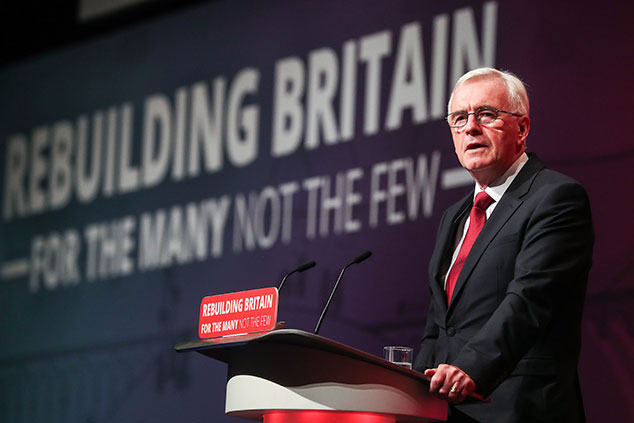
Philip Hammond, the chancellor, thinks it is a good idea, too, and Michael Fallon, the former defence secretary, has been asked to look at ways to make it easier. And judging by his comments at the Labour party conference this week, shadow chancellor John McDonnell is also convinced of the merits of employees owning shares in the companies they work for.
This unusual outbreak of cross-party consensus makes sense. An inquiry last year concluded that employee ownership increases workers’ sense of “fairness and happiness” and creates feelings of “motivation and wellbeing”. It works for employers too, “unlocking exceptional levels of discretionary effort as a direct consequence of employees becoming owners”.
The numbers back up these feelings. The Employee Ownership Index shows that listed UK companies that have 3% or more of their share capital held by or for the benefit of employees regularly outperform the rest.
New routes to wider share ownership
This does not necessarily mean that the very act of handing out shares will transform the fortunes of a poor company. It is possible that the causation runs in the opposite direction: perhaps it is characteristic of well-run companies to have employee share schemes, rather than a feature of groups with share schemes that they are well run.
Anyone who worked for and invested in Northern Rock or Enron would be quick to point out that too much exposure to your employer can be a very bad thing indeed. But there is probably enough evidence for us to assume that giving employees some sense of ownership in the company they work for is generally beneficial.
Previous governments have noticed this. That’s why the UK has many schemes to encourage it: share incentive plans, employee ownership trusts, save-as-you-earn schemes, company share options and enterprise management incentives. Still, most employees do not own a part of their employer, so it makes sense that we should be looking for new routes to wider ownership.
McDonnell has suggested one. He wants to make British companies that employ 250 people or more hand over 1% of their shares, up to a total of 10%, to a trust for employees. The workers would then get to share the dividends produced by these shares to a maximum of £500 each. That way everyone would get “a greater say, and a greater stake, in the rewards of their labour”.
McDonnell’s plan is full of flaws
It sounds nice, but there is a problem. Shares are not magic. They are just bits of paper. What really matters is not those bits of paper but, as George Bull, a senior tax partner at accountancy network RSM, points out, the rights, obligations and extent of ownership attached to them. Own ten shares in a company with only 30 shares and you will have a firm sense of ownership. Own ten in one with 500,000 and you won’t have much of one. Enjoy a vague right to a limited amount of dividend income from shares that may or may not pay a dividend, have no right to any relevant capital gains and you might wish your employer would just give you a pay rise instead.
This is not the only problem with McDonnell’s plan. There is the tax grab element – everything over £500 a head goes to the state, something that might or might not produce £2bn in new tax revenue over five years, but which will definitely have side effects. It could encourage buybacks over dividends or, more optimistically perhaps, encourage capital spending over short-term profit generation.
Then there is the confiscation element: 10% given to workers is 10% taken from shareholders (who are also often pension funds and savers). And there will be the eventual effect on pay. Given how people react to incentives, how long, I wonder, does McDonnell expect it to be before the companies he has targeted start paying an average of £500 less in salary than companies that pay out no dividends?
A better way
There is a better way to do this. The Conservative party, which I suspect might be a bit short of good ideas for next week’s annual conference, should simplify the schemes already in place. But they might also consider the success of Thatcher’s privatisation campaigns. Their egalitarian spirit – most applications were limited to a few hundred shares in order that as many people as possible could participate – introduced popular capitalism to a generation. The number of individuals owning shares tripled to nine million in the 1980s.
The success of pension auto-enrolment has built on that, making almost everyone in work a shareholder. Hammond could take this further by adding an employee shareholder element into auto-enrolment – allowing a small percentage of the employer contribution of listed companies to be given in company shares paid directly into employees’ pensions, perhaps with an extra tax relief bung along the way.
This would be relatively simple; inoffensive to employers (auto-enrolment has to be scaled up anyway); reasonably fair to employees (those at unlisted companies would still get the same pension contributions, just invested in the usual portfolio); and easy for employees (everyone loves a default benefit).
Unlike McDonnell’s plan, it might give all employees some sense of actual ownership of real shares and, if this is to work, that’s the only thing that really matters.
• This article was first published in the Financial Times